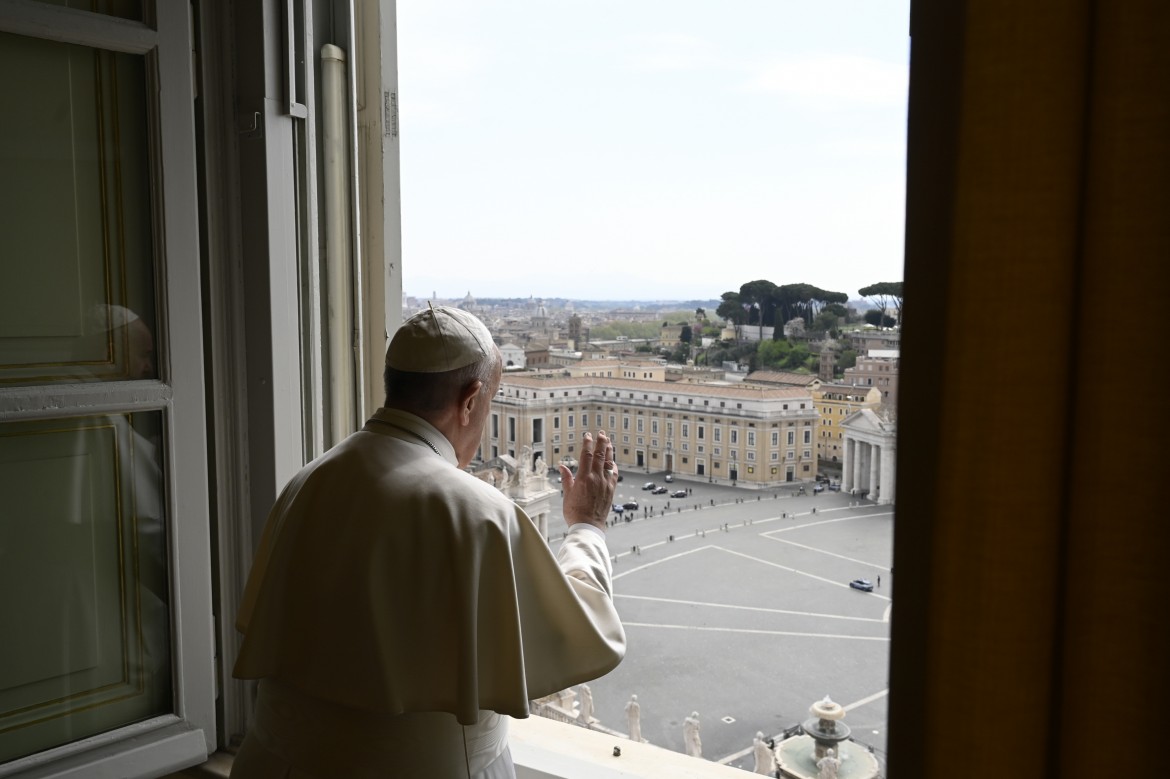Analysis
Pope Francis: dignify workers with a ‘universal basic wage’
Francis recognizes that the workers have been wronged, they have no rights and have no work to do.

“This may be the time to consider a universal basic wage which would acknowledge and dignify the noble, essential tasks you carry out. It would ensure and concretely achieve the ideal, at once so human and so Christian, of no worker without rights.”
This was Pope Francis’s message to the “world popular movements” in a letter published on Easter Sunday, in which he described them as “social poets” who have “the culture, the method, and most of all, the wisdom that are kneaded with the leaven of feeling the suffering of others as your own.” The recipients of this “wage” should include informal workers, such as “street vendors, recyclers, carnies, small farmers, construction workers, dressmakers, the different kinds of caregivers.”
This “universal wage” is based on the status of the human being as a worker, whose condition as bereft of rights is doubly penalized by the COVID-19-induced crisis. The proposal is conceived as a response to the capitalist division of labor inserted in the context of the triad that, in Francis’s view, characterizes the struggle of the “popular movements”: “Trabajo (work), Techo (housing), and Tierra (land and food).”
This doctrine jettisons the classic teaching of St. Paul, who, in his Epistle to the Thessalonians (3:7-12), understood unemployment as a fault of the individual: “The one who is unwilling to work shall not eat.” Francis recognizes that the workers have been wronged, they have no rights and have no work to do. Work, without qualifications, remains a conditional right, and is not understood as a freely performed activity, impossible to undertake in a capitalist society where labor remains a commodity.
Francis seems to be pointing the way toward a “guaranteed minimum income” rather than a “universal basic income.” These measures are usually confused: the former is paid only while the beneficiary remains in a state of need, is linked to compulsory activities such as community service, compulsory training and mobility (like the so-called “citizenship income” in Italy), and may be supplemented by a subsidy for rent or access to services.
On the other hand, basic income is an unconditional measure that—at least for those below the respective poverty line—is a recognition of the right to exist independently of whether or not one works. If understood as ”remuneration”—a concept used rather euphemistically in the Italian version to translate the original word “salario” (“wage”) in the Spanish version (the Pope’s native language)—such a measure would be a compensation for people’s invisible free labor done for the digital platforms, which the poor also perform.
A true basic income, which would benefit at least 14 million people in Italy, is the goal of the campaign for the unrestricted extension of the “citizenship income” supported by the Basic Income Network (BIN) petition and the “quarantine income” campaign. Between the two types of proposals, a middle ground is possible, involving a redefinition of the social and welfare shock absorbers in a universalistic direction, no longer based on contractual status, socioeconomic condition or family status.
The “universal” wage that Francis is talking about, if understood as truly “universal,” should be awarded to the individual, not to the family unit, favoring the self-determination advocated by the feminist movements such as Non Una di Meno, which are fighting to protect women’s freedom from economic dependence, domestic violence and the patriarchy.
These measures should also be accompanied by a minimum wage—also alluded to by the Pope—to avoid wage dumping practices between the precariously employed and those who are receiving the “income.” However, the legislative proposals (by the PD and M5S, among others) have been set aside for now.
The Pope’s position has been welcomed by the founder of the Five Star Movement, Beppe Grillo, who has proposed once again—unheeded by his party—the adoption of a “universal income.”
“Now, it’s up to politics to speak with the same clarity,” said the spokesman of Sinistra Italiana, Nicola Fratoianni, who is in favor of the measure. However, the Minister of Labor, Nunzia Catalfo (M5S), has confirmed that the “April decree” will include another emergency measure, category-based and non-structural, for an “emergency income” (€500-600) for 3 million precarious workers and workers from the underground economy, in addition to the bonuses for the self-employed with VAT numbers (increased from €600 to €800 from April 15) and the redundancy funds.
Not even the Pope’s intervention seems to be able to change the direction being pursued by the government.
Originally published at https://ilmanifesto.it/papa-francesco-chiede-un-salario-universale-per-i-precari/ on 2020-04-14
